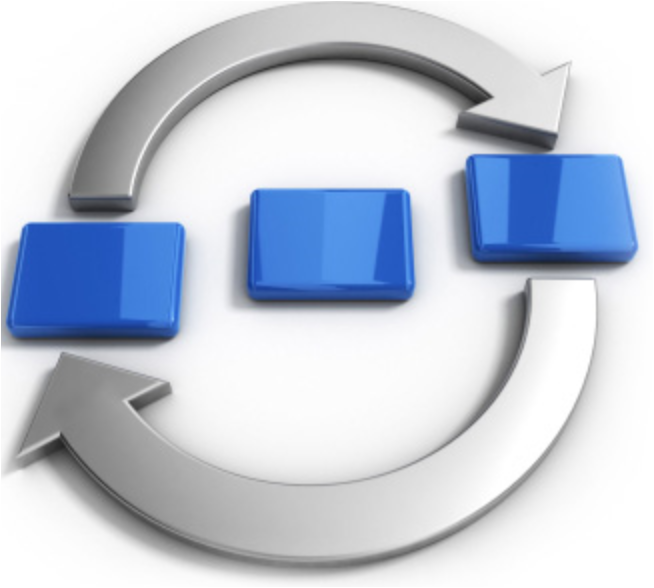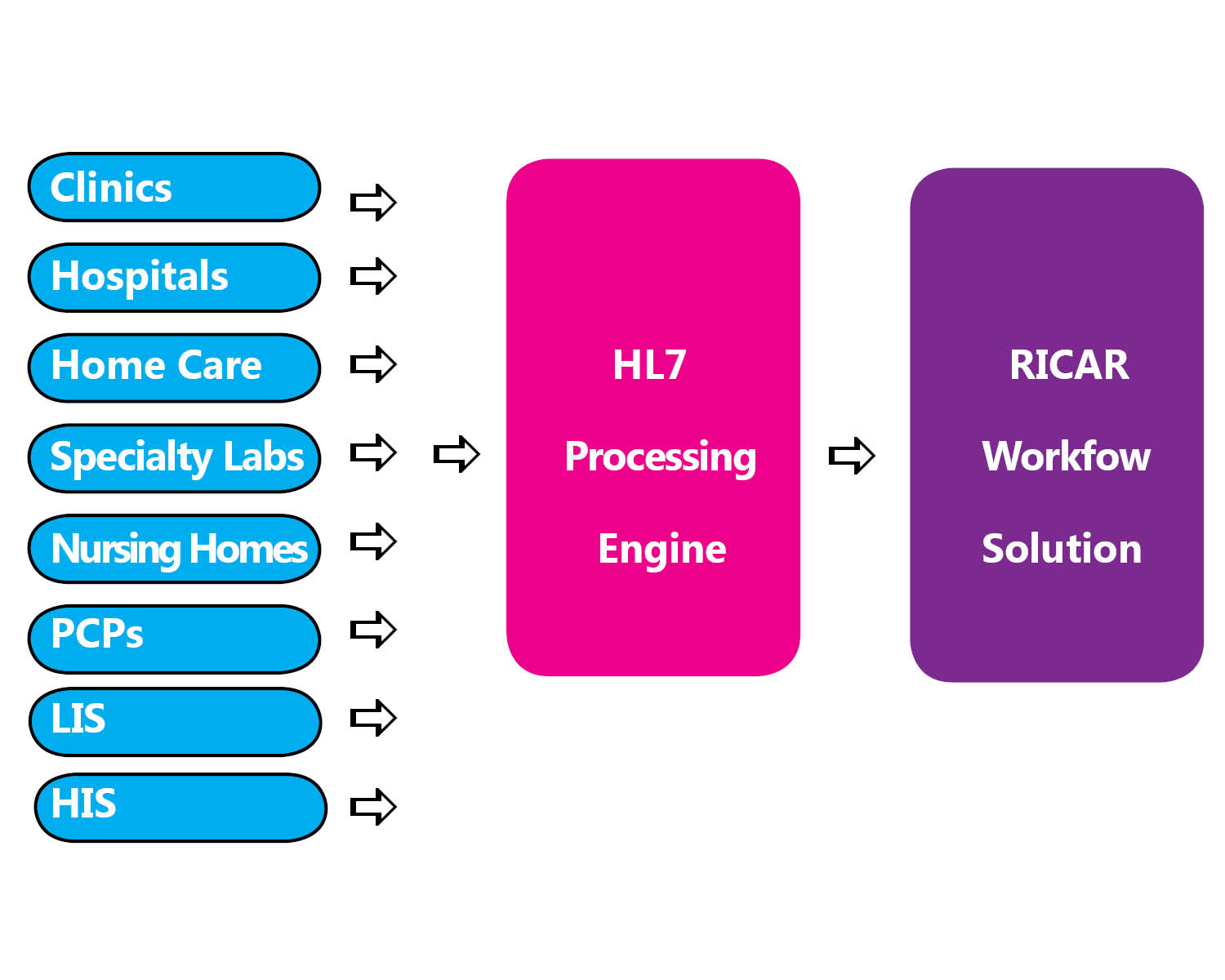
HL7
Making your Laboratory more Competitive (without losing revenue)
BREAKING NEWS — Contrary to popular belief, the advent of EMR/EHR interfacing and electronic orders from physicians and clients to the laboratory has NOT reduced the amount of requisitions and their associated documents Freedom's laboratory customers scan.
Sure, the laboratory specimen processing or accessioning data entry task has been all but eliminated with these (typically HL7) interfaces. But the phlebotomist will either print a HL7 hardcopy version of the requisition LIS/EMR/EHR or the patient will bring one. And it will be included in the specimen bag for couriering to the laboratory and subsequent processing and testing. In the real world, most medical laboratories are not comfortable with simply placing a barcode (or otherwise identifying the patient) on the specimens, dropping them in a bag and shipping them off to the main lab without some level of paperwork. This paperwork (or source document) now becomes an integral part of the patient's record, and in many scenarios, it is the primary record — especially for claim creation in billing. Add that the phlebotomist may have written additional information on the source document (incorrect or omitted data transmitted with the HL7 file), it makes an even greater requirement for the hard copy HL7 requisition to be captured, used to update your LIS and archived.
Your next thought might be… great! Awesome! I love when solutions have been sitting in front of my nose all along! So you're saying the information is there, but, how do I use it?
As with non-HL7 requisitions, a percentage of all source documents will fail to make their way to the capture and archiving process and 1-3% percent is not uncommon.
With Freedom's HL7 Processing Engine in place, an electronic requisition or order that has gone missing can be restored via a system generated and human readable document from the HL7 files that provides an alternate digital record that can now be used for LIS updating, claims creation and even insurance audits.
All the data contained within the HL7 file, which was created when the patient's order was initially delivered electronically by the physician, including: Patient Name, DOB, Client Name/Account, Tests, ICD codes (all HL7 data) can be mined, sorted, consolidated. Furthermore, it is used to: 1) ensure record completeness, 2) index the records with search criteria and 3) automate the RCM process based on your organization's current specifications.
Why should a Laboratory use an HL7 interface?
Most healthcare entities, including hospitals, laboratories, physicians, clinics and diagnostic providers typically have many different computer systems, including EMR and EHR, that can be used for everything from laboratory test tracking, billing (claims and accounts receivable) to patient scheduling. Many of these systems communicate with each other through something called an HL7 file.
- Increased revenue — with the ability to recover missing requisitions that previously represented a write-off due to inability to process claims.
- Reduction in costs — with the ability to minimize search time for missing documents by regenerating a requisition or order from HL7 file(s) saves hours of valuable time and labor searching.
- Decreased LIS-vendor dependence — an HL7 interface creates a centralized, automated hub for messaging between all clinical systems, content/data management systems (RICAR), and clients.
- Fill insurance audit gaps — ensure a printable record is available for the order.
- Improved quality control — with the addition of FreeAudit you can monitor quality of data you are mining.
- Archive — ensure critical HL7 electronic orders are securely archived for audit confirmation, disaster recovery and legal storage requirements.

To stay competitive laboratories need to climb aboard the HL7 Processing Engine. It's not a do I need it item anymore — it's a must have item to keep your laboratory up to speed with the ever changing needs within the healthcare environment. Laboratories need to maintain the rapid pace and accuracy which is demanded in the clinical environment. Don't be left behind…
To speak with one of our HL7 Processing Engine specialists today, contact Freedom Imaging Systems at 734.327.5600.
 734.327.5600
734.327.5600 Contact Us
Contact Us

